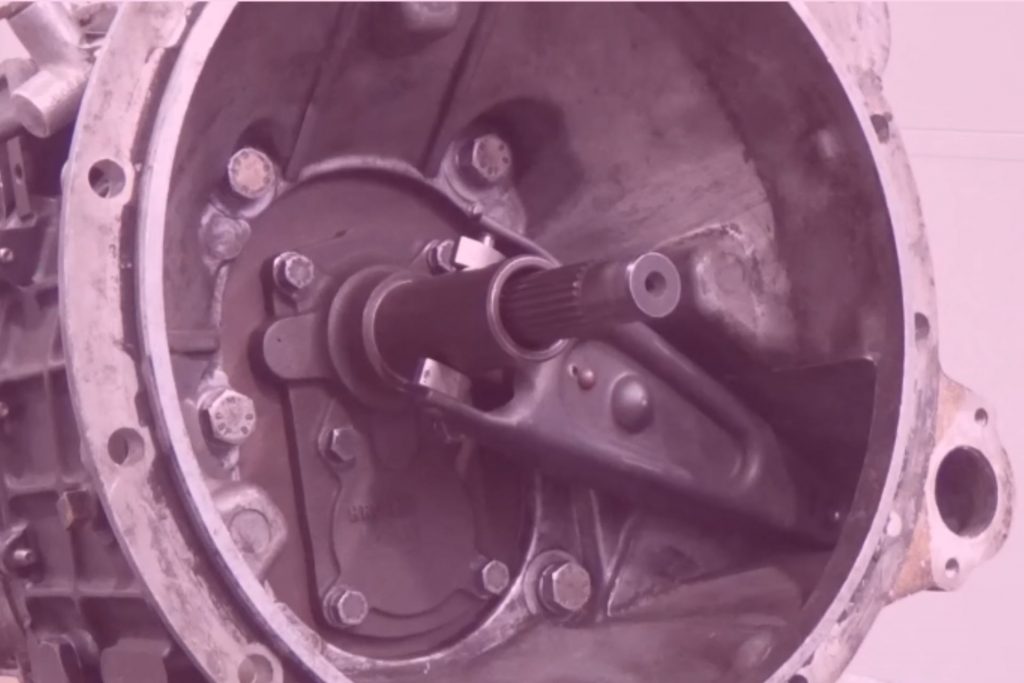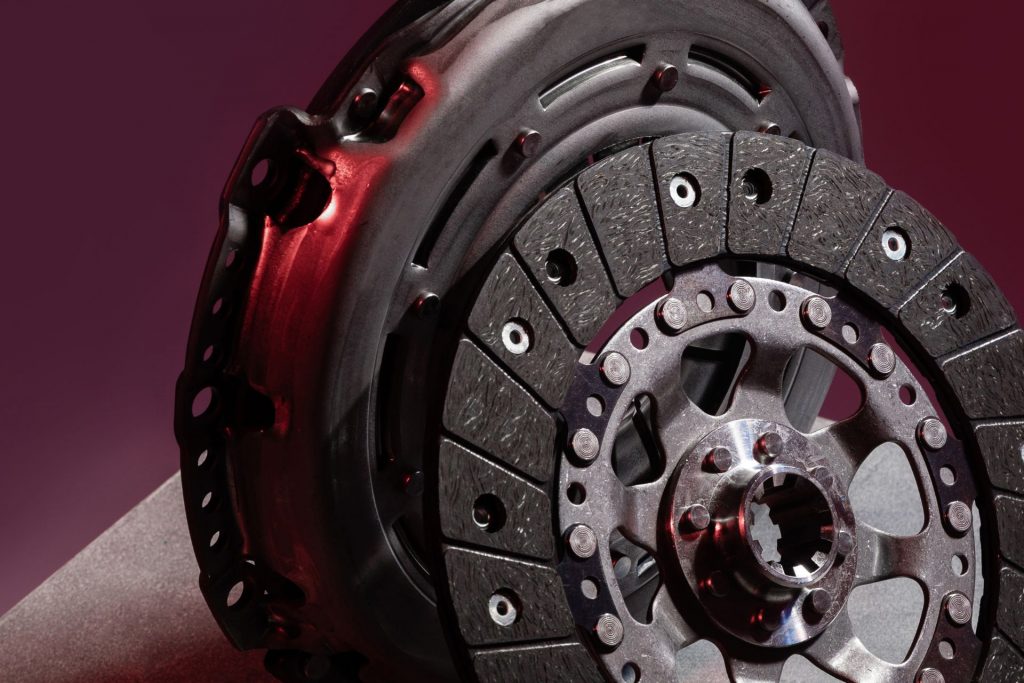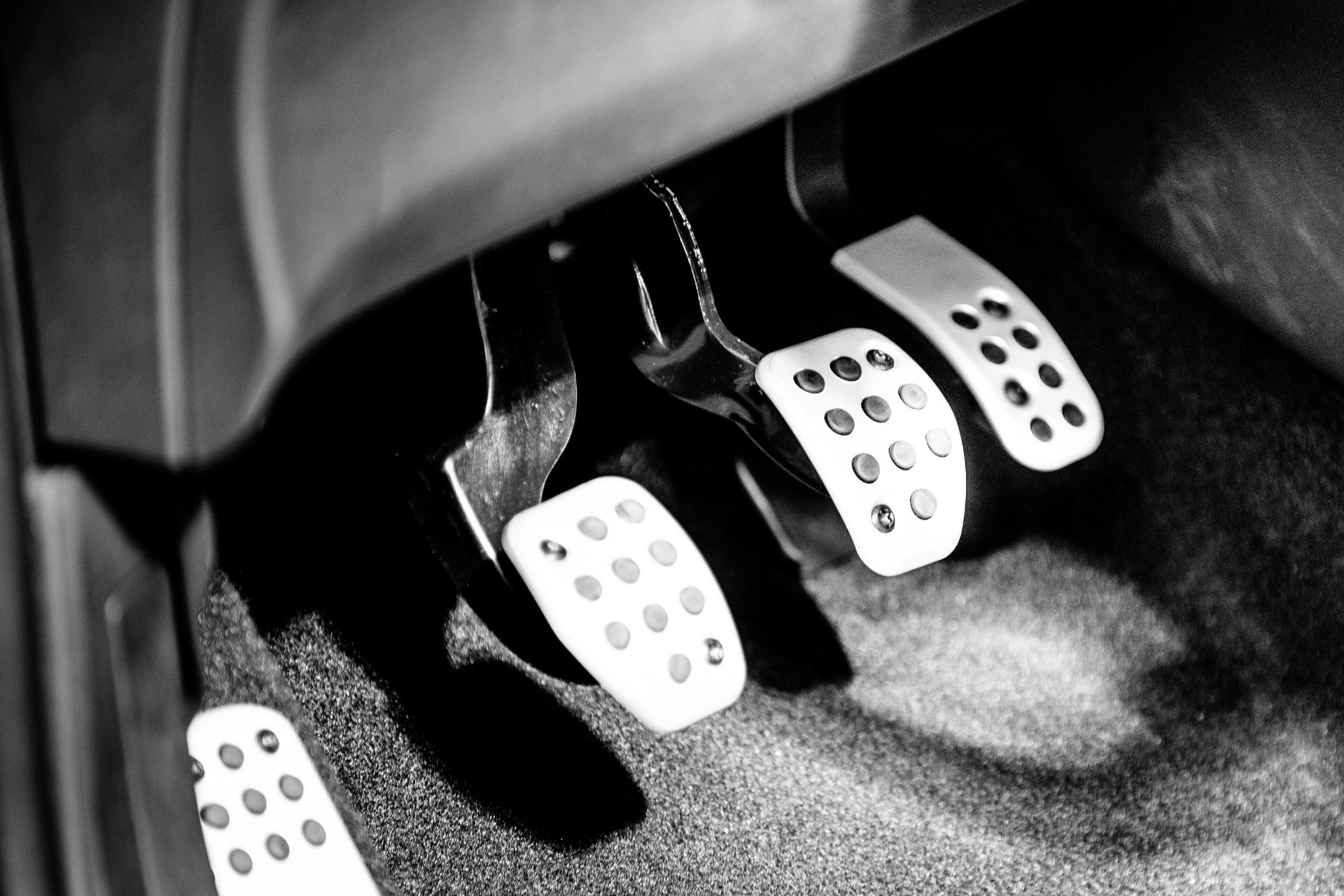The smooth operation of a clutch is necessary for driving your vehicle seamlessly. However, since so many components and systems are involved in making a clutch function, when the car suffers from wear and tear, the clutch making a noise when released is a common occurrence.
Why does my car clutch make a noise when released?
The clutch makes a noise when released can be quite a few, like wear and tear of input or throw-out bearings, damaged clutch pressure plate, lack of lubrication, worn-out contact points, and so on.
1. Wear and tear of input or throw-out bearing:
Every time you release the clutch, the input and the throw-out bearings, will spin. Every spinning will lead to wear and tear. Of course, the bearings are designed for thousands of times of use. However, considering that you might use your car daily, these thousands of spinnings will occur in only a few years.

When the input and throw-out bearings suffer from extensive wear and tear due to constant use, the clutch might start making noise when released.
2. Damaged clutch pressure plate:
Not everyone uses the clutch efficiently. Sometimes, pressing the clutch even when accelerating your vehicle; skipping the gears, or using the clutch to reduce the acceleration instead of the brakes can result in wear and tear of the clutch pressure plate.

Usually, the clutch pressure plate is designed for such use. However, if you do that repeatedly, the clutch pressure plate might eventually get damaged. After extensive wear and tear or damage, it might make a noise every time you release the clutch.
3. Lack of lubrication:
Every time a clutch is used, some heat is generated. However, the lubricant in the clutch system is designed to efficiently disengage the friction plate and the clutch assembly. That results in low heat and reduces the wear and tear of various components in the clutch system.
The problem is that this lubricant has a fixed life span. With every usage of the clutch, some lubrication might get lost. Eventually, the lubricant is reduced so low that the clutch system is not lubricated enough. When that happens, noise might occur every time you release the clutch.
4. Worn-out contact points:
The clutch assembly is designed with friction between the clutch disc, pressure plate, and flywheel. This friction results in heat. While most of the heat is taken care of by the lubricant but it also results in wear and tear of the contact points. Since multiple contact points are involved, one of them will suffer from excessive damage sooner than later.
When that happens, the clutch might make a noise every time you release it. Thus, worn-out contact points are another reason why your clutch might be making noise.
5. Clutch disc damper failure:
A clutch disc damper aims to control the movement of free and spinning gears to provide you with the motion or speed you need. Apart from that, it also controls the vibration provided to the transmission system. To do so, the clutch damper system consists of various springs and discs.
However, the disc is designed for a set number of uses. Sure enough, the number is pretty high, in thousands. However, if you do not use the clutch system efficiently, it can lead to wear and tear of this disc. When that happens, the disc can’t control the system’s torque or the vibration efficiently, resulting in noise every time you release the clutch.
6. Fork vibration issues:
Most modern cars have a clutch disc to ensure that the clutch system or assembly operates smoothly. However, every time you use the clutch system, there is some wear and tear and heating.
In the absence of lubrication, the clutch assembly might overheat, resulting in wear and tear of the clutch disc. When that happens, there is no smooth engagement between the flywheel and the pressure plate. In this case, the clutch assembly might still function, but there will be excessive vibration. The damper will be unable to absorb a high amount of vibration resulting in noise.
7. Light flywheel issues:
Just like every other system of your car, the clutch assembly also requires proper maintenance. However, the maintenance is pretty limited, like lubricating various parts and ensuring that the clutch assembly is installed properly. In the absence of such maintenance, the light flywheel might not be able to function properly.
When that happens, every time you release the clutch, there might be a sound produced.
While any of these problems can result in noise when you release the clutch, it is not easy to detect the exact problem using just the causes.
A much better approach is to observe the type of sound produced when you release the clutch. Once you detect that sound, diagnosing and fixing the problem is easy.
Below, we will cover the eight most common types of noises a clutch makes when released and their fixes.
Different clutch noises & troubleshooting tips
The noise will help you understand the problem and the likely solution you need to adopt.
1. Grinding noise when releasing clutch – why?
A grinding noise is pretty common when the clutch is released. Usually, this means either a problem with the input shaft bearing or the lubrication.
How to fix it?
The best way to fix this problem is to replace the input shaft bearing. Usually, the bearing cannot be repaired. However, if the problem is only the lubrication, the entire clutch assembly can be lubricated again, eliminating the grinding noise.
Most mechanics will directly go for the input shaft bearing replacement rather than first trying out the lubrication. That is why, if your car is suffering from this problem, ask a mechanic to lubricate the system and test the clutch again before replacing the input shaft bearing.
2. Whining noise when releasing clutch – why?
- The first problem is an off-center bearing.
- The second problem indicates an off-center input shaft. Not only will there be noise every time you release the clutch, but the noise can increase.
- The third cause of the same is defective pilot bearing.
How to fix it?
The way to fix the off-center bearing is to check the form factor of the bearing. If it is fine, merely adjusting it will do the trick. However, in most cases, the off-center bearing is because of damage to the bearing. In that case, nothing other than replacing the off-center bearing will do. Fortunately, the bearing is inexpensive, so you won’t have to worry about the cost.
If the damage is minimal, a mechanic can fix an off-center input shaft easily. However, if the wear and tear are extensive, you might need to replace the shaft.
The only way to fix a defective pilot bearing is to replace it. Once again, the pairing is not that expensive, so it makes perfect sense to replace it.
3. Clicking noise when releasing clutch – why?
The clicking sound while releasing the clutch indicates a problem with the throw-out bearing. This is the case when it happens whenever you release the clutch. If it happens only occasionally, it might be due to the clutch safety switch designed to prevent the clutch from being fully depressed.
How to fix it?
If you have diagnosed the problem, it is better to get the mechanic’s opinion once the mechanic inspects the clutch assembly. That way, you can be 100% sure that only the throw-out bearing is the problem and can be replaced quickly.
4. Clunking noise when releasing clutch – why?
Consistent clunking noise every time you release the clutch might be a problem with your car clutch assembly’s dual mass flywheel system. The flywheel’s job is to work with the dampening springs and gear to reduce vibration and noise. However, they also suffer from wear and tear.
This wear and tear can sometimes damage the dual mass flywheel to such a level that it cannot function appropriately, which certainly results in clunking noise.
How to fix it?
When the DMF or the dual mass flywheel is damaged, replacement is the only solution. If you still notice a faint sound after the replacement, there is a problem with another component of the clutch assembly. After the replacement of the DMF, you might need to fix that as well.
To do so, you have to try to detect the type of noise when you release the clutch, and after that, you can diagnose the secondary problem.
5. Rattling noise when releasing clutch – why?
The rattling noise can occur whenever the clutch disc malfunctions or defects. In certain cases, it can be due to the heavy load on the clutch disc. Another reason why rattling noise can occur is because of the problem with the dampers.
How to fix it?
If you are experienced in repairing your vehicle, you can check the clutch disc. If there is a defect or a malfunction, there will be damage visible on the clutch disc. In case of heavy loads, the clutch disc will get damaged.
In case the clutch disc is fine, it indicates that the problem might be with the damper. Replacing the damper can be done on your own if you have a bit of experience in repairing vehicles or if that is not the case, you will have to take your car to a mechanic to get the damper replaced. Fortunately, it will take a little time for a seasoned mechanic to replace the damper, so you can start using your vehicle soon.
6. Popping noise when releasing clutch – why?
The likely cause of the same is the wear and tear of the joints.
Popping noise is generally milder than the other noises I have discussed on this list. However, if it is indeed occurring, again and again, it indicates that there might be a problem that you cannot ignore. Even if you attempt to ignore this problem because the noise is mild, soon it will increase, and your clutch assembly will not be able to function appropriately.
How to fix it?
The simple solution is to get the inner joint replaced. However, it might so happen that if you replace a single inner joint, the problem might occur in another one. So, it is a good idea to inspect your vehicle by a mechanic and let the mechanic decide which inner joint has the problem and replace it accordingly.
7. Knocking noise when releasing clutch – why?
The problem can be a loose flywheel, a broken transmission gear, or even loose parts bouncing around in the clutch assembly.
Knocking noise on a steady basis every time you release the clutch can be because of multiple problems; a mechanic can only do the exact diagnosis.
How to fix it?
In case of a loose flywheel or loose pressure plate, it is easy for the mechanic to tighten it and fix the problem. If the transmission bearing is broken, it needs replacement. The same is true for broken transmission gear as well. The easiest problem to solve, however, is the bouncing of a loose part in the clutch assembly. That simply needs some tightening, and you will be able to use your vehicle again in no time.
8. Squeaking noise when releasing clutch – why?
Squeaking noise is usually associated with your clutch assembly’s release or throw-out bearing.
How to fix it?
Simply put, you can replace the throw-out or the release bearing to fix this issue.

